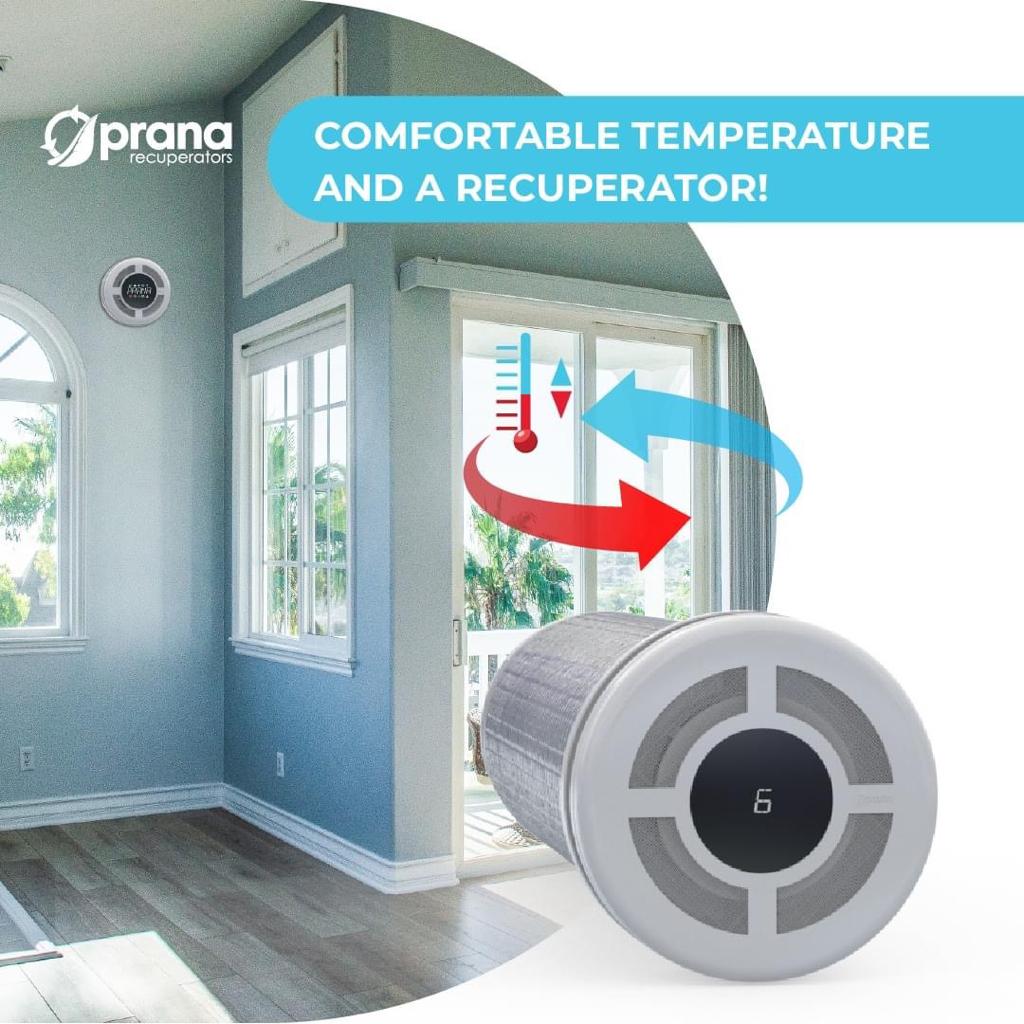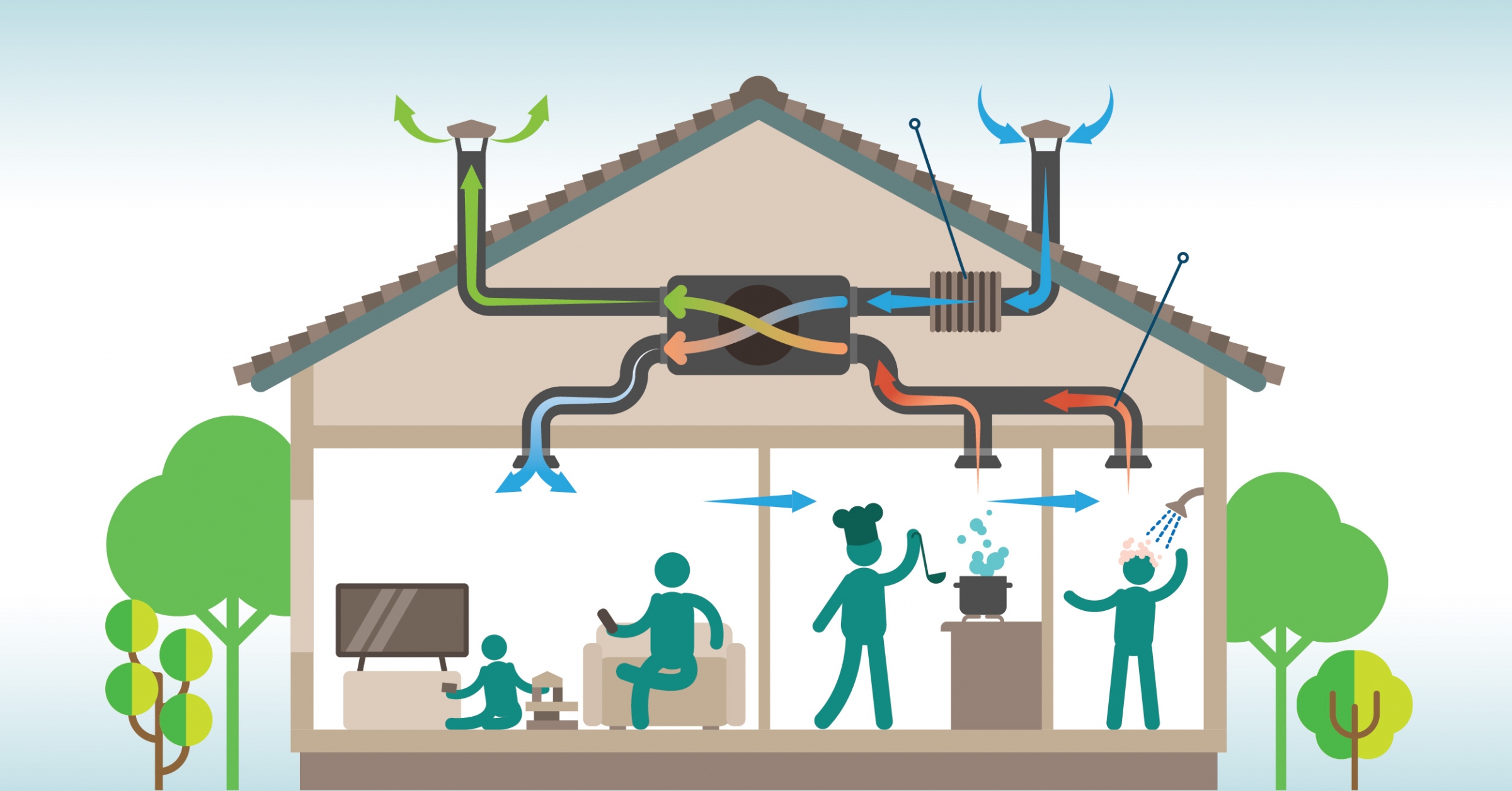Home Ventilation Melbourne Explained: Natural vs Mechanical Options
Wiki Article
The Role of Home Ventilation in Avoiding Mold and Indoor Allergens
Home ventilation is a vital element in preserving a healthy indoor atmosphere. It controls humidity levels, which can prevent the growth of mold and the accumulation of irritants. Several homeowners overlook the significance of proper ventilation, frequently leading to unseen concerns. Understanding how air flow systems feature and their influence on air top quality might be the secret to a healthier home. What steps can be required to enhance these systems effectively?Recognizing Home Air Flow Solutions
While numerous homeowners might neglect the significance of ventilation, recognizing home air flow systems is necessary for maintaining interior air top quality and stopping mold development - Home Ventilation Melbourne. These systems assist in the exchange of stale interior air with fresh outdoor air, successfully decreasing pollutants and dampness levels. Usual types consist of natural ventilation, which counts on wind and temperature level distinctions, and mechanical ventilation, which utilizes ducts and followers to manage air movement. Additionally, well balanced air flow systems combine both methods to enhance air quality. Appropriately designed and preserved air flow systems can aid regulate temperature level and humidity, making sure a comfy living environment. House owners should think about variables like home climate, design, and tenancy when choosing an air flow system to ideal match their needs and improve overall air quality
The Impact of Moisture on Mold And Mildew Growth
Moisture plays a crucial duty in mold growth, making it an essential variable for house owners to keep track of. Mold grows in atmospheres where moisture degrees exceed 60%, as these problems offer the dampness needed for spores to proliferate and sprout. High humidity can arise from different resources, including inadequate ventilation, water leakages, and food preparation or bathing tasks. When humidity levels stay elevated, mold can create quickly on organic products such as drywall, timber, and fabric. Home owners ought to make use of dehumidifiers and guarantee appropriate air flow in locations prone to wetness, such as washrooms and basements. Preserving interior moisture in between 30% and 50% can significantly lower the risk of mold growth, adding to a much healthier living environment.Determining Usual Indoor Allergens
Interior environments can nurture a variety of allergens that affect health and wellness and convenience. Usual indoor allergens include dust mites, family pet dander, mold and mildew spores, and plant pollen. Dirt termites thrive in bedding, rugs, and upholstery, eating natural product and adding to respiratory system concerns. Pet dander, composed of tiny flakes from skin and fur, can set off allergies in sensitive individuals. Mold spores, typically existing in moist locations, can impact and proliferate air high quality. Furthermore, pollen can infiltrate homes via open home windows or on apparel. Recognizing these irritants is necessary for preserving a healthy and balanced indoor environment. Awareness of their presence permits home owners to take positive steps to reduce exposure and boost general indoor air quality.Benefits of Correct Air Flow
Appropriate ventilation is important for preserving a healthy and balanced indoor setting, as it assists to regulate air top quality and minimize the buildup of toxins. Sufficient airflow promotes the exchange of indoor and outdoor air, therefore watering down hazardous materials such as unstable natural compounds, irritants, and dust. This procedure not only improves convenience however additionally contributes to the total well-being of passengers by reducing respiratory system issues (Home Ventilation Melbourne). Home Ventilation Melbourne Additionally, proper ventilation properly controls moisture degrees, decreasing the probability of mold growth and promoting a drier setting for health and wellness. Additionally, it can enhance energy effectiveness by making certain that heating and cooling systems operate a lot more properly, leading to lower energy costs. In general, appropriate ventilation is an essential component in promoting a safe and healthy living space

Tips for Improving Home Air Flow
Many homeowners might forget it, boosting home air flow is vital for improving air quality and preventing mold and mildew development. One efficient technique is to frequently open windows to advertise cross-ventilation, permitting fresh air to distribute. Installing exhaust followers in restrooms and kitchens can successfully eliminate moisture-laden air, reducing moisture levels. Property owners should likewise consider making use of air cleansers with HEPA filters to capture toxins and allergens. Regularly preserving HVAC systems, including transforming filters, assurances come to a head airflow and performance. Sealing leakages around doors and home windows can avoid outdoors air from going into, which aids preserve a regular indoor atmosphere. Incorporating houseplants can normally improve air high quality while including visual worth to the home.Frequently Asked Questions
Exactly how Often Should I Clean My Home Ventilation System?
Figuring out just how often to clean a home ventilation system depends upon different aspects, consisting of use and ecological problems. Home Ventilation Melbourne. Usually, specialists advise a comprehensive cleaning every three to five years to maintain optimal air flow and effectivenessCan Plants Help In Reducing Indoor Allergens?
Research indicates that certain interior plants might help in reducing allergens by enhancing air quality and increasing moisture. Their effectiveness differs, and preserving a clean setting stays important for taking care of indoor allergens properly.What Kinds Of Air Filters Are Ideal for Mold And Mildew Prevention?

Exist Specific Ventilation Demands for Cellars?

Just how Do I Know if My Air Flow Is Functioning Efficiently?
To determine effective ventilation, one should monitor humidity degrees, inspect air flow with vents, and observe indications of condensation or stagnant air. Regular assessments can indicate whether the system sufficiently distributes and exchanges indoor air.Understanding just how air flow systems function and their impact on air quality can be the trick to a healthier living space. While many property owners might forget the value of ventilation, recognizing home ventilation systems is necessary for preserving indoor air top quality and preventing mold and mildew growth. Common kinds include all-natural ventilation, which counts on wind and temperature level differences, and mechanical air flow, which utilizes followers and ducts to regulate air flow. Proper air flow is important for keeping a healthy interior environment, as it aids to control air top quality and decrease the build-up of pollutants. Several property owners might neglect it, boosting home ventilation is necessary for enhancing air high quality and protecting against mold development.
Report this wiki page